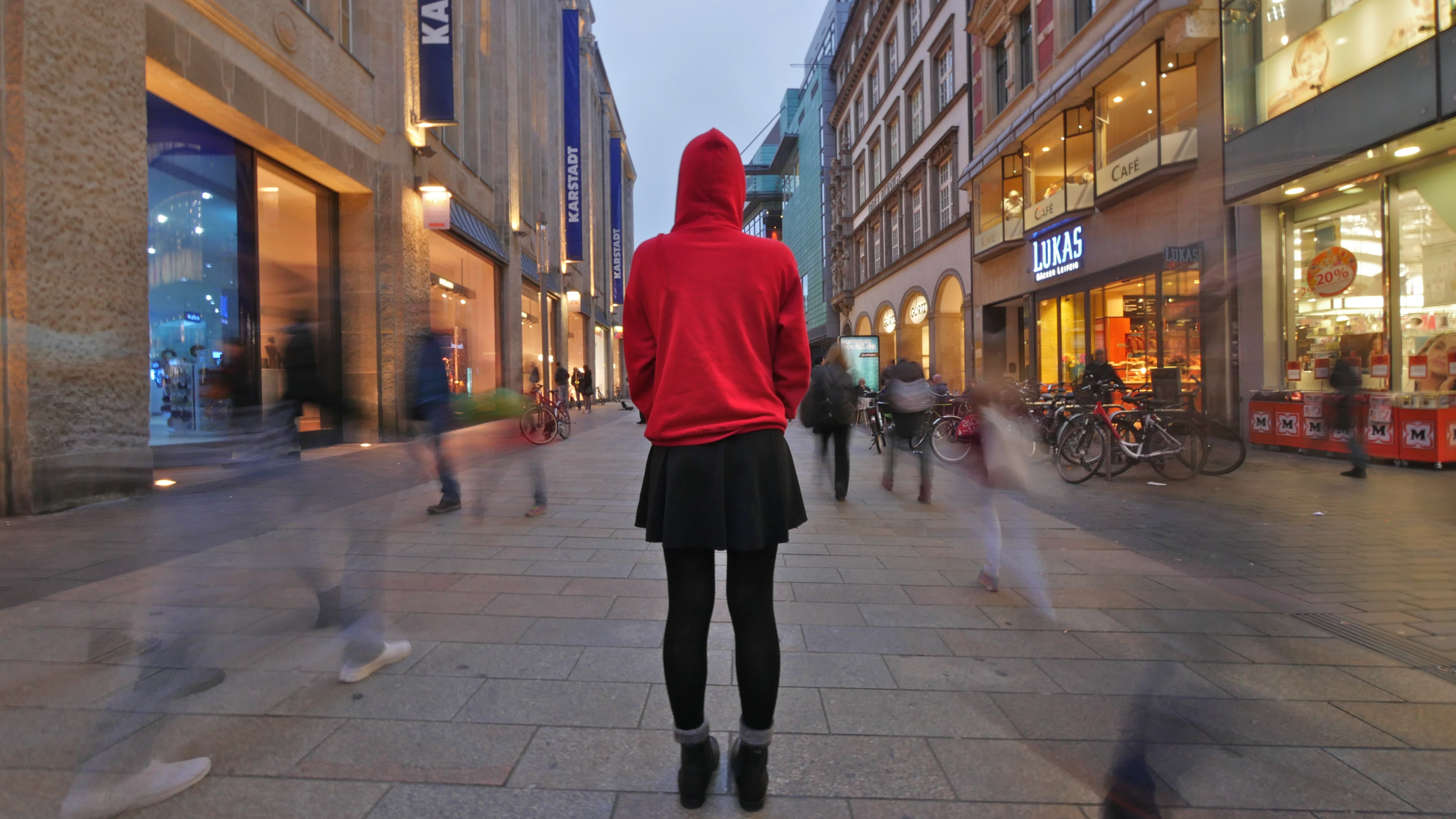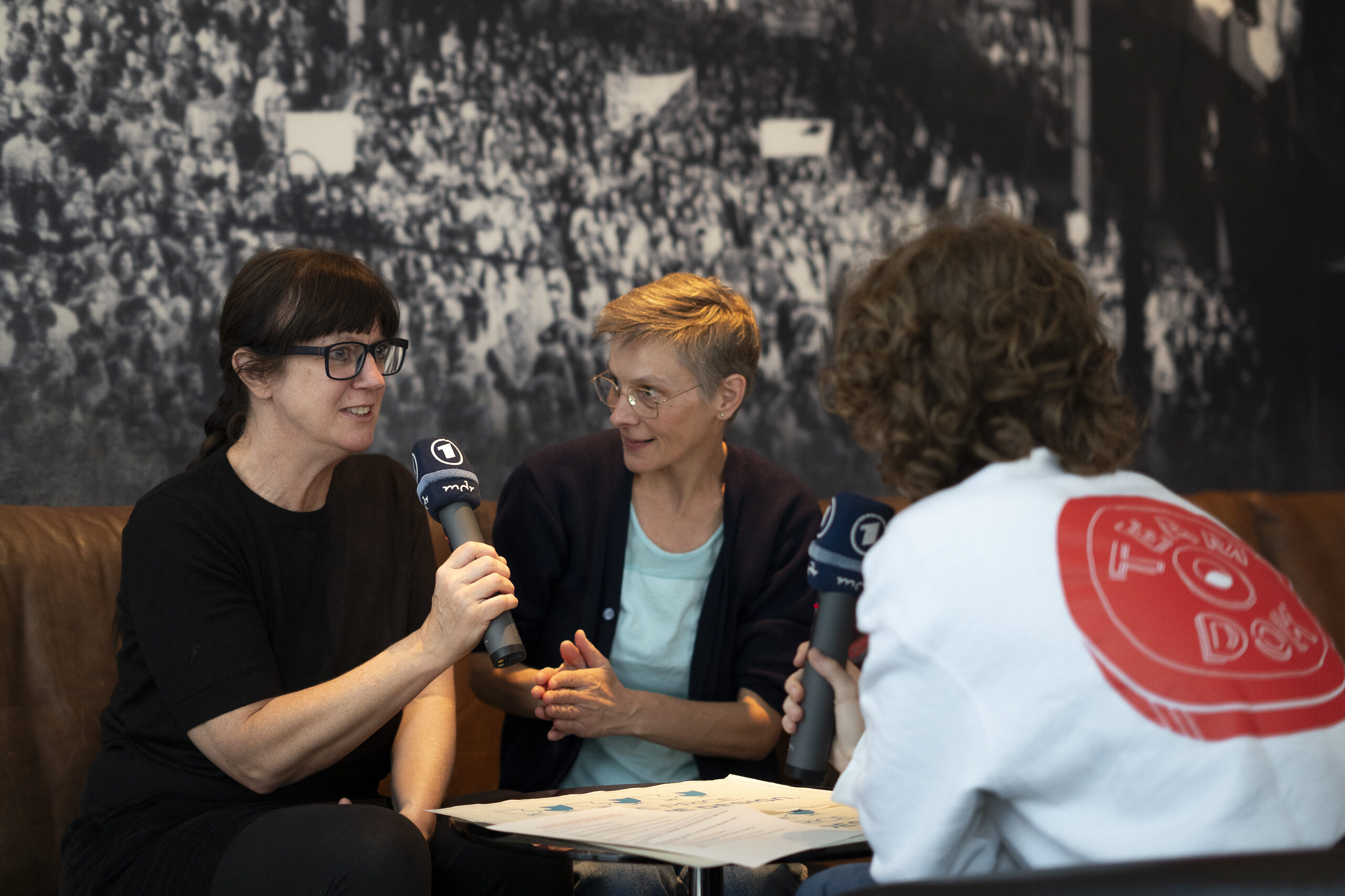What is it like to be invisible? This is what the movie “The Other One” shows us, which deals with a problem that is almost as invisible as the protagonist Johanna. She is eighteen years old, has just finished school and dreams of studying psychology – and she has an autistic little sister. So she not only has to deal with familiar problems – lovesickness, school stress, thoughts about the future – but also carries another burden. Just like many other teenagers in Germany or around the world, Johanna always has to be there for her family: she looks after her sister Roza when her parents are at work, picks her up from school and plays with her. In addition, there are numerous conversations with the family in which advice from Roza’s psychologist is discussed. Because for Roza, everything always has to go exactly according to plan, and even then she regularly throws hysterical tantrums that the family can’t always deal with effortlessly.
In the midst of these immense family pressures is Johanna, following her own wishes, then held back by the family. Of course it is incredibly difficult to prepare for a school-leaving certificate and university entrance exams when you are constantly told by your parents how dependent the family is on your decisions. Shouldn’t it actually be different – the child is relieved of the burden of the parental home? What’s more, Johanna is not only heavily involved in her sister’s care, but hardly seems to get any attention or time from her parents herself. Almost every conversation with them is about Roza. At one point, Johanna has to tell her mother that she is not a parent, but “only” Roza’s sister.
The film makes it clear how much Johanna is struggling with her situation. She tries to find a place to retreat to with her friends, but conversations about the future repeatedly show her what is different for her than for so many others. While her friends joke that they would prefer to stay at home and become “mommy’s girls”, Johanna smiles sadly and keeps quiet – sometimes she just wants to get away from home. Johanna’s friend Gabina is her biggest support, at least at the beginning of the movie. But then Gabina breaks up with Johanna: she wanted more attention and is disappointed because Johanna spends so much time at home with her sister.
Johanna says that she can hardly sleep – despite taking sleeping pills. She’s too scared for her sister and always has “racing thoughts” that don’t allow her to rest.
Again and again during the film, you get the feeling that Johanna isn’t really listening and is blocking out her surroundings: instead of the conversations and noises around her, you hear a pulsating background noise that sometimes gets louder and sometimes quieter and is reminiscent of tinnitus. Sometimes she records Roza’s outbursts and then listens to them to do sport, as motivation, she says.
At one point, Johanna talks about a voice that has appeared in her head – perhaps it would be better if it just disappeared.
Although Johanna’s situation in the film is easy to understand and I feel for her, I took away one thing above all: a lot of anger. On the one hand, at people like Johanna’s parents and at society, who simply don’t see stories like Johanna’s, but also at the film itself. Unfortunately, a lot of things seem very inauthentic. Not only do the conversations and scenes often seem staged, the overall situation also seems particularly exaggerated as a result: apart from her friends, we only ever see Johanna when it’s about Roza – and even then we are often only shown the more dramatic situations in which Johanna is comforted by her friends or feels isolated. Otherwise, Roza can always be seen and heard in the background: tidying up, playing with a ball or screaming hysterically.
If I didn’t know from my own experience how it can feel to go under at home, I would probably walk out of the movie quite indifferent: it can’t be as bad as you see it in the movie. Even the director, who also has a neurodiverse sister, doesn’t contradict the statement that her film is reminiscent of a coming-of-age film with its stylistic means and structure, which makes me think.
It’s one thing to devote more attention to the stories of people like Johanna in feature films and thus support their representation in society. But it’s another thing, in my opinion, to make a documentary so exaggerated and almost unrealistic that nobody takes it seriously anymore. Of course, there are also “positive” moments in Johanna’s life: When her father asks her at her graduation party if there really isn’t anything nice in her life, she replies, “Yes, there is, me!” And when she finally drives off to university in a fully loaded car at the end of the film, a cheerful song plays and Johanna smiles – now everything is good again.
But scenes like this scare me that the people who should really see the movie – people like Johanna’s parents – don’t understand the real message. Because children like Johanna, who have to do so much more at home than just being allowed to be a child, are not seen in society. And what good is it if only people who are affected themselves feel addressed? I also think that young people like Johanna deserve much more attention – but unfortunately, for me this movie is nothing more than a mere reminder that something is going wrong.
Autorin: Nora
Beitragsbild: © DOK Leipzig 2024 / The Other One, Marie-Magdalena Kochová





